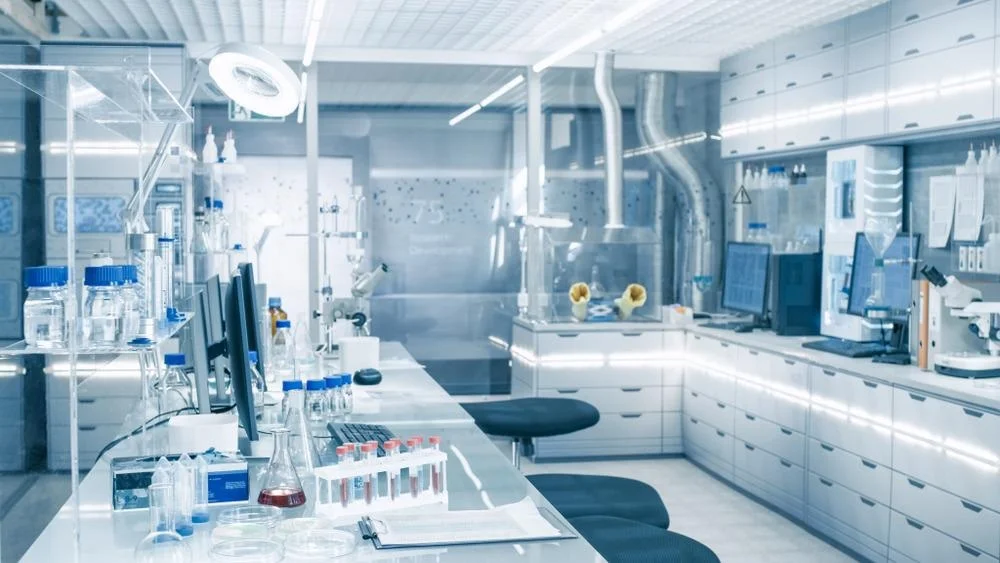Biodiesel Organic Contaminant Screening
Organic contaminants in biodiesel can significantly impact its performance and shelf life. These contaminants may include chlorinated hydrocarbons, polychlorinated biphenyls (PCBs), pesticides, herbicides, and other hazardous substances that are introduced during the production process or due to environmental factors.
Screening for these organic compounds is crucial for ensuring product compliance with international standards such as ISO 18032:2007, ASTM D6751, and EN 14541. These standards dictate that biodiesel must meet specific quality criteria to ensure safe and reliable performance in diesel engines.
Our laboratory employs advanced analytical techniques including gas chromatography-mass spectrometry (GC-MS), liquid chromatography-tandem mass spectrometry (LC-MS/MS), and high-performance liquid chromatography (HPLC) to identify even trace levels of contaminants. Our team of experts ensures that the testing process is thorough, accurate, and compliant with industry standards.
The testing procedure begins with a detailed analysis of the biodiesel sample, followed by extraction methods such as solvent-based techniques or solid-phase extraction (SPE). Once extracted, the compounds are analyzed using state-of-the-art equipment. This allows us to detect and quantify even trace levels of organic contaminants, providing our clients with reliable data.
The results of these tests are reported in a comprehensive manner, detailing all detected contaminants along with their concentrations. Our reports also include recommendations for corrective actions if any hazardous substances are found above the acceptable limits as defined by relevant standards.
| Standard | Description |
|---|---|
| ISO 18032:2007 | International standard for biodiesel quality. |
| ASTM D6751 | Standard specification for biodiesel fuel. |
| EN 14541 | European standard for biodiesel quality. |
The importance of organic contaminant screening cannot be overstated. By adhering to these standards, we ensure that the biodiesel produced and used meets stringent environmental and health safety requirements. This not only enhances the overall quality but also protects against potential legal issues and reputational damage.
Our expertise in this field allows us to offer a full range of testing services, including initial contaminant detection, follow-up analysis, and remediation advice. We work closely with our clients to ensure that their biodiesel products meet the highest quality standards and are safe for use.
Competitive Advantage and Market Impact
- Our laboratory is equipped with cutting-edge GC-MS, LC-MS/MS, and HPLC equipment.
- We provide rapid turnaround times for test results, ensuring timely decision-making.
In today’s competitive market, quality control is more important than ever. By offering precise and reliable testing services for organic contaminants in biodiesel, we give our clients a significant advantage over competitors who may not adhere to the same stringent standards.
Our expertise ensures that our clients can maintain compliance with international standards, thereby reducing risks associated with non-compliance. This is particularly important given the growing demand for clean and sustainable energy solutions. By providing accurate data on contaminant levels, we help our clients make informed decisions regarding product quality and safety.
The ability to detect even trace amounts of organic contaminants allows us to identify potential issues early, preventing costly recalls and reputational damage. This proactive approach to quality control is a key differentiator for our laboratory services in the biodiesel sector.
Use Cases and Application Examples
- In production facilities: To ensure that incoming raw materials do not introduce harmful contaminants into the final product.
- In quality assurance departments: To verify that finished products meet specified quality standards before release to market.
- In research and development teams: To identify potential sources of contamination in new biodiesel formulations.
Organic contaminant screening is essential throughout the biodiesel lifecycle—from raw material procurement through production, quality assurance, and final product delivery. This ensures that all stages of the process are free from harmful substances that could affect performance or pose health risks.
A case in point is a major biodiesel producer who sought our assistance to identify and rectify contamination issues in their supply chain. By implementing our testing protocols, they were able to pinpoint specific contaminants and take corrective actions promptly. This not only improved product quality but also enhanced customer satisfaction and loyalty.
Another example involves an R&D team exploring new biodiesel blends. Our screening services helped them identify a potential contaminant that could compromise the effectiveness of their blend, allowing for adjustments to be made before proceeding with large-scale production.





